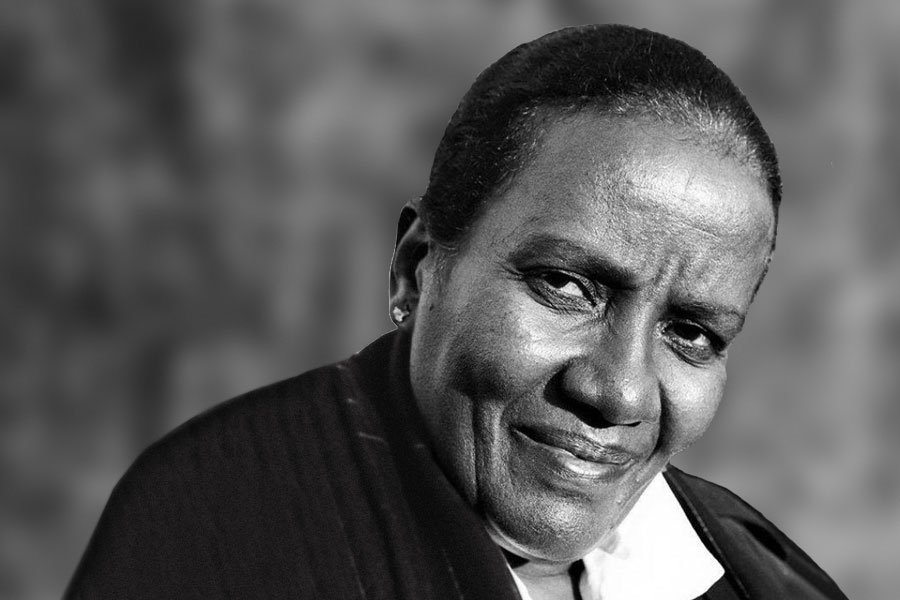
Fortune News | Nov 27,2021
The cinema hall at the National Theatre was nearly empty, with just half a dozen people attending, including two projectionists running the movie from a laptop. The film, part of a three-day Japanese Movie Festival in Addis Ababa, was a somber depiction of the life of a 70-year-old Japanese widow. I learned about the event on its final day and hurried to attend, only to find that the movie had already been playing for 45 minutes. Although the show was scheduled to start at 7 PM, it had begun an hour earlier at 6 PM. Thankfully, the film was lengthy, so I managed to follow most of the story.
What continues to amaze me is the lack of interest from Addis Abeba residents in such rare cultural festivals. These events offer opportunities for cultural exchange, knowledge enrichment, and the promotion of the arts. Over the years, I have attended European film festivals at the Italian Cultural Institute, watching movies ranging from Gianni Versace’s biography to Ennio Morricone’s score for The Good, The Bad, and The Ugly, and Francesco Totti’s football journey. Typically, crowds show up for opening events when snacks and drinks are served. Many young attendees leave midway, showing little interest in the films themselves. It leaves me wondering where we are heading as a society.
During the Japanese movie screening, technical issues marred the experience. The projectionist struggled with a mismatch between the audio and video, causing repeated interruptions. The film, originally a Blu-ray file, was being played using VLC Media Player, which isn’t equipped to handle Blu-ray formats without additional software like MakeMKV. The disruptions made it hard to follow the story, diminishing the film’s impact. Despite the setbacks, I admired the projectionist's effort to ensure the screening continued, even for an audience of just six or seven people.
The film, Ora, Ora Be Goin’ Alone, tells the story of a woman who fled Japan’s countryside at 20 to escape an arranged marriage and find true love. Set during the 1964 Tokyo Olympics, it reflects a transformative era in Japan. I imagined the character as one of the many fans of Abebe Bikila, the Ethiopian runner who captivated Tokyo with his Olympic record-breaking marathon win, running barefoot.
The 1964 Tokyo Olympics were a moment of pride for Japan, with its athletes achieving remarkable feats.
Yuko Tanaka, who portrayed the protagonist Momoko, vividly brought the character to life. At 75, she continues to enjoy an illustrious acting career. Many Ethiopians remember her as the lead in Oshin, a Japanese drama that aired on Ethiopian TV for nearly a year and became very popular. Like Oshin, Ora, Ora Be Goin’ Alone resonates globally, especially in China, for its deeply emotional themes and reflections on the struggles of life.
In the film, Momoko grapples with the loss of her husband of 50 years. The psychological toll manifests as three young men, embodiments of her inner demons, who follow her everywhere, symbolizing her struggle to accept her new reality. She clings to memories of cherished moments, like walks in the park, but is constantly pulled back to the painful truth: her husband is gone, and those moments are now only dreams. The film poignantly captures her battle with grief and the loneliness that follows such a profound loss.
Before going to the movie, I paid a visit to my parents, something I had avoided for weeks due to a lingering cold. I didn’t want to risk infecting them, especially my mother. When I arrived, my mother greeted me warmly, wearing a mask; she had already caught a cold from one of her many grandchildren. She was alone at home and delighted to see me.
We dined together, chatting as the hours passed. Over coffee, we discussed various family and societal issues, and our conversation brought to mind her recently deceased best friend of over 50 years. This woman, whom we regarded as a second mother, had spent much of her life alone. After separating from her husband in her early thirties, she raised her only son, who left for a better life abroad at 18. Unlike Momoko in the movie I later watched, her loneliness spanned decades.
I vividly remember her funeral. Her grieving son, who had been separated from her by oceans for years, cautioned me to keep an eye on my mother. He knew how deeply she would be affected by losing her closest confidante. His concern struck me, especially as he faced his own profound loss as an only child.
My mother has never truly come to terms with her friend’s passing, and I don’t think she ever will. Their bond was closer than most blood relationships. They met in high school in the 1970s and became inseparable from the start. It was during a visit to her friend’s home that my mother met the young man who would become her husband of 50 years and the father of her children. Without her best friend, our family as we know it might never have existed, a connection that feels like divine intervention.
As I spent that afternoon with my mother, I reflected on how fortunate I was. Too often, we take life and our loved ones for granted, forgetting that our time here is fleeting. Sooner or later, nature reminds us of life’s impermanence. Many people regret not spending enough time with their loved ones, especially their parents, once the inevitable happens.
The most priceless moments are those spent with family, particularly our senior relatives. Yet, modern life often distracts us. The hectic pace, daily responsibilities, and complexities of contemporary living make it easy to neglect these precious bonds. Looking back, I regret the times I couldn’t see my parents because of life’s demands. Fortunately, my siblings stay in regular contact with them, even the one who lives in the United States, making video calls several times a week. The joy my parents feel when they see me reminds me of how invaluable they are.
Eventually, we will all face a reality like Momoko’s, confronting loneliness and the inevitability of loss. It’s crucial to internalize the transient nature of life and focus on what truly matters. Ora, Ora Be Goin’ Alone is a poignant reminder, a bell tolling for us all to treasure our loved ones.
PUBLISHED ON
Dec 07,2024 [ VOL
25 , NO
1284]


Fortune News | Nov 27,2021

Life Matters | Aug 05,2023

Sunday with Eden | Feb 12,2022

Radar | Dec 17,2022

Life Matters | Jan 28,2023

Fortune News | Apr 24,2021

Editorial | Dec 19,2020

Radar | Aug 24,2019

Obituary | Mar 21,2020

Fortune News | Sep 08,2019

Dec 22 , 2024 . By TIZITA SHEWAFERAW
Charged with transforming colossal state-owned enterprises into modern and competitiv...

Aug 18 , 2024 . By AKSAH ITALO
Although predictable Yonas Zerihun's job in the ride-hailing service is not immune to...

Jul 28 , 2024 . By TIZITA SHEWAFERAW
Unhabitual, perhaps too many, Samuel Gebreyohannes, 38, used to occasionally enjoy a couple of beers at breakfast. However, he recently swit...

Jul 13 , 2024 . By AKSAH ITALO
Investors who rely on tractors, trucks, and field vehicles for commuting, transporting commodities, and f...

Oct 25 , 2025
The regulatory machinery is on overdrive. In only two years, no fewer than 35 new pro...

Oct 18 , 2025
The political establishment, notably the ruling party and its top brass, has become p...

Oct 11 , 2025
Ladislas Farago, a roving Associated Press (AP) correspondent, arrived in Ethiopia in...

Oct 4 , 2025
Eyob Tekalegn (PhD) had been in the Governor's chair for only weeks when, on Septembe...